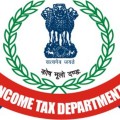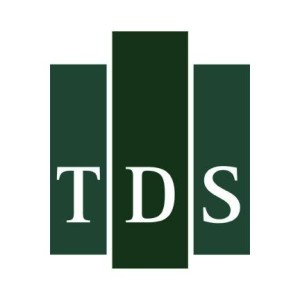Tax Planning Tools In India for AY 2021-22
There are various scheme introduced by Government in their budget. Followings are most popular Tax Planning Tools In India for AY 2021-22 which is useful for salaried Individual assessee:
Life Insurance
Life Insurance Policy is widely adapted tool both for Life Insurance and Tax Saving. There are many life insurance plans available as per need of policy holder. Both Government (Public Sector Companies) vis-a-vis private institution are actively engaged in Life Insurance Business. Following are major category of Life Insurance in India:
- Term Insurance Policies
- Unit-linked Investment Policies (ULIP)
- Pension Policies
- Money-back Policies
For tax saving point of view Section 80C of the Income Tax Act, 1961 provides deduction [maximum upto Rs.1,50,000/-] from gross total income of Individual/HUF assessee for Life Insurance Premium paid for himself, Spouse and Children. In case of HUF deduction is available of LIP paid for any member of HUF.
For detailed discussion click here….
Public Provident Fund [PPF]
The PPF [Public Provident Fund] is most popular income tax saving scheme after LIP in India. PPF offers an investment with assured returns combined with income tax benefits. The PPF scheme is governed by the Public Provident Fund Scheme 1968 and the Public Provident Fund Act, 1968 (23 of 1968). The main features are below:
- Eligible Person to open PPF Account: Individual in his own name or his minor children. Non-resident Indians, HUF are not eligible to open PPF a/c.
- Maturity Period :15 years which may extends upto 5 years.
- Minimum Deposit Rs.500/- Per year and highest limit is Rs.150000/- in one Financial Year.
- Withdrawal: Partial withdrawal/loan allowed during lock in period.
- Interest rate: 8.10% p.a. w.e.f. 01-04-2016 (Government Notification)
- Maximum deduction from gross total income is Rs.1,50,000/- u/s 80C of Income Tax Act,1961.
For detailed discussion click here….
Residential Housing Property
The Residential House Property gives not only shelter for life but also provide various tax benefits to assessee under the Income Tax Act, 1961. Following are important tax benefits:
A. Construction/Purchase/further extension of residential House Property:
Eligible: Individual or a HUF
Deduction u/s 80C : Maximum Deduction Allowable Rs.1,50,000/-
- Repayment of the principal amount borrowed by the assessee from specified person in section 80C(xviii) (c).
- Payment of instalment due to any company or co-operative society of which the assessee is a shareholder or member towards the cost of the house property allotted to him;
- Stamp duty, registration fee and other expenses for the purpose of transfer of such house property to the assessee
Deduction u/s Section 24(b): Interest on Housing Loan: Where the property has been acquired, constructed, repaired, renewed or reconstructed with borrowed capital, the amount of any interest payable on such capital upto Rs.2 Lacs (after Budget 2014). Deduction of such interest will be available only when assessee furnishes a certificate, from the person to whom any interest is payable on the capital borrowed, specifying the amount of interest payable by the assessee for the purpose of such acquisition or construction of the property, or, conversion of the whole or any part of the capital borrowed which remains to be repaid as a new loan.
Repair or maintenance:
Section: 24(b): Rs.30,000/- is allowable for Interest payable on Loan taken for repair and maintenance of self occupied house property. No deduction for Repayment of loan taken for repair & Maintenance.
B. Sale/Transfer of Residential House Property
|
Section |
Particulars |
Limit of exemption |
| Deductions allowable from Taxable Income to Individual/ HUF | ||
|
54 |
Investment of long-term capital gains, arising from sale of residential house or land appurtenant thereto, in purchase/construction of one new residential house (Subject to certain conditions and limits). | Amount invested in one new house or capital gain, whichever is lower. |
|
54F |
Investment of long-term capital gains, arising from transfer of any long term asset other than a residential house property, in one new residential house property, provided that on the date of transfer the assessee should not own more than one residential house property (Subject to certain conditions and limits). | Amount invested in one new asset X capital gains/ et Consideration |
|
54GB |
Investment of long-term capital gains arising from transfer of long-term capital asset, being a residential property, for subscribing the equity shares of an eligible company and such company has, within one year from the date of subscription, utilized this amount for purchase of specified new asset (subject to certain conditions and limits). | Amount invested in new asset by eligible Co. X Capital gains/Net Consideration |
Sukanya Samridhi Account
This scheme was launched by Indian Prime Minister Sh. Narendra Modi on 22-01-2015 in “Beti Bachao, Beti Padhao” campaign. This is another successful nationwide scheme of Sh. Narendra Modi after ‘Pradhan Mantri Jan Dhan Yojana’. The account can be opened at any India Post office or a branch of some authorised commercial banks in India. The following are silent features of this scheme:
Eliligible person: A natural/ legal guardian on behalf of a girl child whose age is not more than 10 years. Upto two girl children or three in case of twin girls as second birth or the first birth itself results in three girl children
Maximum Deduction u/s 80C: Rs.1,50,000/-
Minimum and Maximum Amount of Deposit: Min.1000 of initial deposit with multiple of one hundred rupees thereafter with annual ceiling of Rs.150000 in a financial year.
Fine: Rs.50/- will be levied is minimum amount not deposited in any Financial Year.
Interest Rate: 8.6% w.e.f. 01-04-2016 (9.20% w.e.f. 01-04-2015 and Prior to this interest rate was 9.1% p.a.)
Maturity: The term of maturity is 21 years from the date of opening of the account. The Maximum period upto which deposits can be made is 14 years from the date of opening of the account. Premature Closure is allowed in the specified situation as per scheme such as death of the depositor, life threatening diseases. However 50% of the balance lying in the account can be withdraw as at the end of previous financial year for the specified purposes such as higher education, marriage after age of 18 years.
For detailed discussion click here….
Children Education
To promote education in India the Government has introduced various tax exemption in relation of expenses on school going children. Following are eligible expenses:
Tuition Fee:
Section 80C of Income Tax Act, 1961 provides deduction from gross total income for payment of tuition fees (excluding any payment towards any development fees or donation or payment of similar nature), whether at the time of admission or thereafter,—
(a) to any university, college, school or other educational institution situated within India;
(b) for the purpose of full-time education of any of the persons specified in sub-section (4);
Children Education/Hostel Allowance
Section 10(14) w.r.t. Rule 2BB (2) provide following exemption to individual employed in India:
- Children Education Allowance: 100 per month per child up to a maximum of two children.
- Any allowance granted to an employee to meet the hostel expenditure on his child: Rs. 300 per month per child up to a maximum of two children.
Free Education Perquisites
Where the educational institution itself is maintained and owned by the employer and free educational facilities are provided to the children of the employee or where such free educational facilities are provided in any institution by reason of his being in employment of that employer, nothing contained in this sub-rule shall apply if the cost of such education or the value of such benefit per child does not exceed Rs.1000/- per month.
Note: If any deduction is claimed under any provision of Act then such deduction would not be available under other provisions.
For detailed discussion click here….
Health Insurance in India [Mediclaim Policy]
The Health insurance is popularly known as Medi-Cliam Policy in India. It covers expenditure incurred towards medical treatment and hospitalization. The terms & conditions of medicalim policies are different from insurer to insurer. Medicalim plans in India can be classified into following categories:
- Hospitalization
- Hospital daily cash benefit plans
- Critical illness plans
Tax Benefits
Section 80D of the Income Tax Act, 1961 provide deduction of least of Rs.15000/- or actual payment on account of mediclaim policy. In case of mediclaim policy taken on the life of Senior Citizen the deduction available would be Rs.30,000/- instead of Rs.25000/-. Following are important points to keep in mind in relation to deduction u/s 80D:
For detailed discussion click here….
Investment in Shares/Securities/Deposits
Apart from the above deductions investment in following securities/deposits are also eligible for deduction u/s 80C of the Income Tax Act, 1961:
- Mutual Funds:
- 5 year recurring deposits with post office
- Senior Citizens Saving Scheme
- 5 year term deposit with Post Office
- Notified Bonds of NABARD
- 5 year term deposit with Scheduled Bank
- National Saving Certificates (VIII & IX issue)
- Non-commutable differed annuity
- Sum paid under contract for deferred annuity
- Unit Linked Insurance Plan (ULIP) of LIC Mutual Fund
- Notified Annuity Plan of LIC or any other insurer
- Pension Fund set up by Mutual Fund or UTI
- Home Loan Account Scheme of NHB
Tag: Chapter via Deductions for AY 2017-18
(DISCLAIMER: Though all efforts have been made to express the above contents error free but the Taxindiaupdates/Admin/Author are not responsible for any loss caused to anyone due to any mistake/error.)







